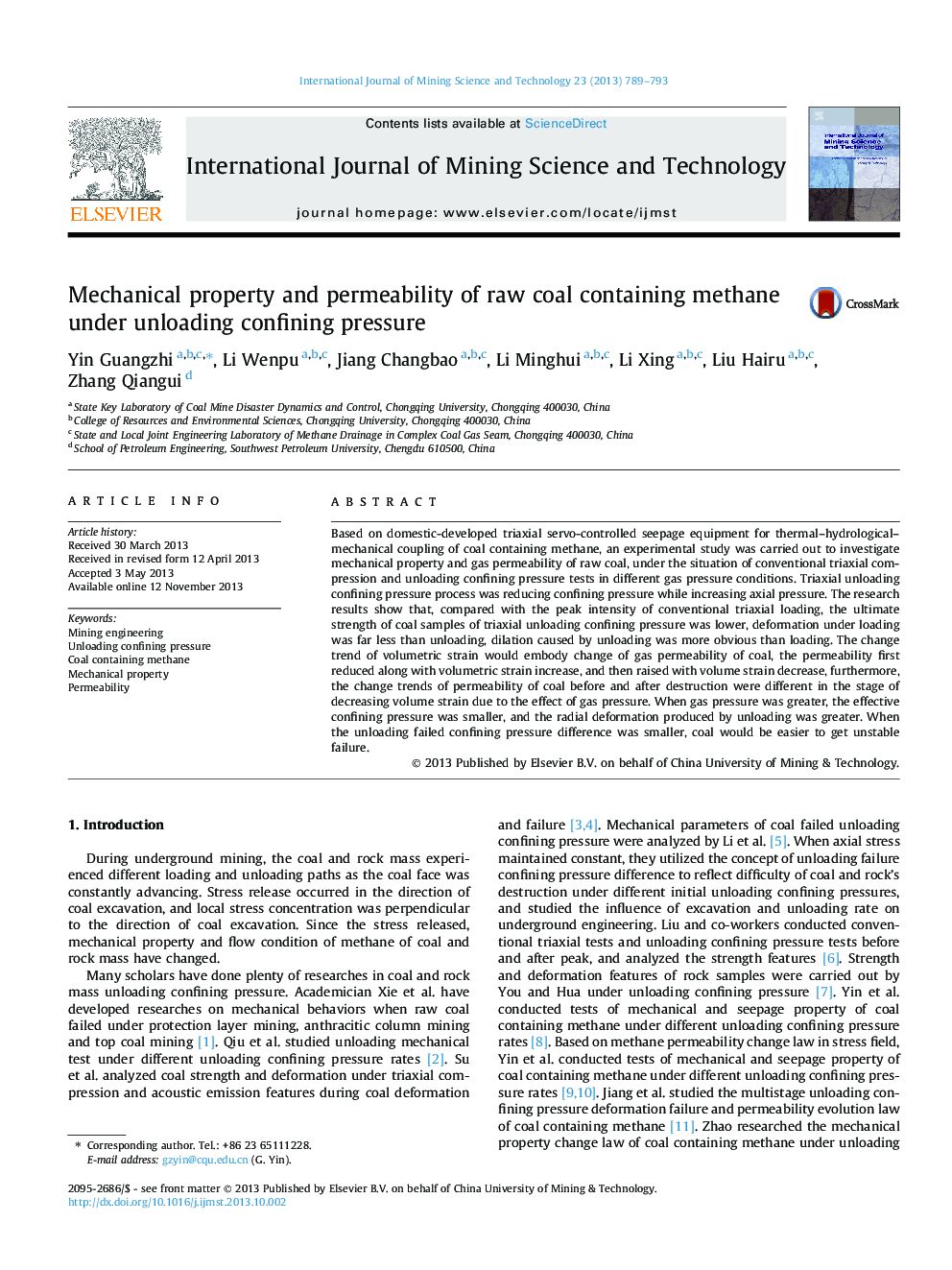| Article ID | Journal | Published Year | Pages | File Type |
|---|---|---|---|---|
| 276161 | International Journal of Mining Science and Technology | 2013 | 5 Pages |
Based on domestic-developed triaxial servo-controlled seepage equipment for thermal–hydrological–mechanical coupling of coal containing methane, an experimental study was carried out to investigate mechanical property and gas permeability of raw coal, under the situation of conventional triaxial compression and unloading confining pressure tests in different gas pressure conditions. Triaxial unloading confining pressure process was reducing confining pressure while increasing axial pressure. The research results show that, compared with the peak intensity of conventional triaxial loading, the ultimate strength of coal samples of triaxial unloading confining pressure was lower, deformation under loading was far less than unloading, dilation caused by unloading was more obvious than loading. The change trend of volumetric strain would embody change of gas permeability of coal, the permeability first reduced along with volumetric strain increase, and then raised with volume strain decrease, furthermore, the change trends of permeability of coal before and after destruction were different in the stage of decreasing volume strain due to the effect of gas pressure. When gas pressure was greater, the effective confining pressure was smaller, and the radial deformation produced by unloading was greater. When the unloading failed confining pressure difference was smaller, coal would be easier to get unstable failure.
